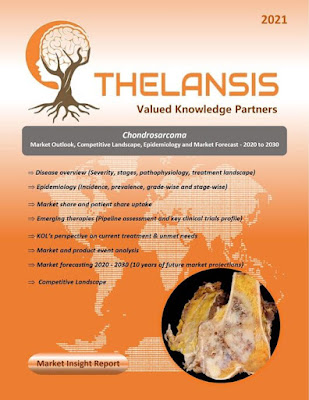X-Linked Recessive Ichthyosis (XLRI) – Market Outlook, Epidemiology, Competitive Landscape, and Market Forecast Report – 2022 To 2032
X-linked ichthyosis (XLI) is a skin disorder caused by a genetic deficiency in the STS gene located on the X chromosome. This leads to abnormal shedding of the skin, resulting in dry and scaly skin with polygonal scales. The condition is typically diagnosed in the first year of life, with some cases manifesting at birth. However, the flexures, palms, and soles remain unaffected, as do the hair and nails. Most XLI patients have partial or complete deletions of the STS gene, resulting in extensive scaling. However, point mutations can also cause complete deficiency in STS. Female carriers of STS do not show symptoms because of the gene's location on the X chromosome. De novo STS mutations can also occur. XLI is mainly differentiated from ichthyosis vulgaris and other types of ichthyosis, such as lamellar ichthyosis. Ichthyosis vulgaris is inherited in an autosomal dominant pattern, with symmetrical light grey scaling typically appearing after three months of age. Flexion zones are affected, but not the palms, soles, and hair.
·
X-linked recessive ichthyosis caused by STS
deficiency affects mainly men and is estimated to have a prevalence of 1/2000
to 1/6000 in China.
Thelansis’s “X-Linked Recessive
Ichthyosis (XLRI) Market Outlook, Epidemiology, Competitive Landscape, and
Market Forecast Report – 2022 To 2032" covers disease overview,
epidemiology, drug utilization, prescription share analysis, competitive
landscape, clinical practice, regulatory landscape, patient share, market
uptake, market forecast, and key market insights under the potential X-Linked
Recessive Ichthyosis (XLRI) treatment modalities options for eight major
markets (USA, Germany, France, Italy, Spain, UK, Japan, and China).
KOLs insights
of X-Linked Recessive Ichthyosis (XLRI) across 8 MM market from the centre of
Excellence/ Public/ Private hospitals participated in the study. Insights
around current treatment landscape, epidemiology, clinical characteristics,
future treatment paradigm, and Unmet needs.
X-Linked Recessive Ichthyosis (XLRI) Market Forecast Patient
Based Forecast Model (MS. Excel Based Automated Dashboard), which Data Inputs
with sourcing, Market Event, and Product Event, Country specific Forecast
Model, Market uptake and patient share uptake, Attribute Analysis, Analog
Analysis, Disease burden, and pricing scenario, Summary, and Insights.
Thelansis Competitive Intelligence (CI) practice
has been established based on a deep understanding of the pharma/biotech
business environment to provide an optimized support system to all levels of
the decision-making process. It enables business leaders in forward-thinking
and proactive decision-making. Thelansis supports scientific and commercial
teams in seamless CI support by creating an AI/ ML-based technology-driven
platform that manages the data flow from primary and secondary sources.
_page-0001.jpg)

Comments
Post a Comment